One day at home, I pulled out my analogue archive. Two sturdy box files. A shuffle of old papers, slides, and photocopies. Things that shouldn’t still matter, but somehow do. I leafed through Log Illustrated magazines from back in the day, revisiting my old haunts—Jon Bywater’s review of Labyrinth, my video, not the Jim Henson movie, although they are essentially the same thing—a trivial Watership Down/Max Ernst mash-up collage that I knew didn’t work even at the time—sigh—then I flicked over and found a poem on the back of the issue.
What is art? by Julainne Sumich. The name gave me a jolt. I remembered a text I received after my art school memoir came out, saying, “Why didn’t you mention Julainne by name? You mentioned Phil by name.” That text gave me a jolt too. It took me a minute to clock who it was from. Then I realised, ah, it was from another woman artist my own age, a peer, someone who had read my book and recognised Julainne. I replied as best I could, “I changed her name because I wrote about her from memory. My memories are subjective. I mentioned Phil Dadson in only one sentence, I didn’t write a scene with him in it. He was less important.” “It was like you erased her,” the texter replied.*
Art is a form of madness
A delirium
A layer of skin gone missing
As I read What is art? Julainne walked back into the room. Her hair scrunched up, face tanned, sceptical, haggard. Still wearing her clothes with an intellectual Worzel Gummidge swagger. The start of each line formed a steep slope down the page. The layout of the poem lent into its innate difficulty.
Julainne, you’ve had a tough time with art. Well, I’ve had a tough time too. Yes, a layer of my skin has gone missing. I used to think art school had taken that layer from me. But lately…I don’t know. I’m lightly marinaded in bitterness, but who isn’t at 50? And what am I bitter about? Paying nearly a hundred grand for a degree in video art in Intermedia a department that no longer exists, or for the values of art school that won’t go away, the botched Avant Garde, a hand full of ready-mades, scatter art, scattered thoughts, the spoke of theory in the wheel of common sense, that tutorial we had in the late 1990s when I showed you my appropriated video of Daryl Hannah turning into the a mermaid in the bathtub in Splash, and you barked, “This can’t be about Daryl Hannah.”
I never expected to write about the way you wore your clothes with a Worzel Gummidge intellectual swagger! The truth hurts, which is why that early tutorial hurt me so much. You were the anti-thesis of my mother. Mum thought I was very clever, you thought I needed to try harder, to research the mermaid across time and culture. My art school degree was—
The lost half second between cause and effect
A waste of time.
No, I don’t mean that. Because the whole crux of my mid-life memoirs—my art school book and my recent mermaid one— hinge on that tutorial I had with you. In my early video I was trying to recapture the feeling I had as a child when I first watched Splash at the movies, and I believed. Instead, I left the tutorial dressed down, your reprimand, “research the mermaid properly, this can’t be about Daryl Hannah” ringing in my ears. You were right, though it me took over twenty years to write my response This can’t be about Daryl Hannah! And even when I wrote that essay, I still didn’t agree because years later still, I found myself on a Zoom call with Daryl Hannah.
It is an effect and a disaffection
It cannot be but what must be done
Julainne, you are speaking to me now in a voice I understand. The Tao of Sumich, the paradigm of misunderstanding, the rasping tongue of missing the point. Twice. What is art? Because it seemed it wasn’t what I made and brought into that tutorial decades ago. Yet perhaps you were wrong, and I was right? Because whilst nothing about art has been easy, I have kept it in my sights. I have even interviewed Daryl Hannah! Daryl is also an artist; she makes excellent ceramics. You propose art is—
A compulsion
A non-entity
A street person
That which has no home.
I own no home, my deepest shame. Not many have built their castle out of video tape, and collages of Walt Disney characters. But I also blame myself. I spent years unfocused, working in bookstores, having big feelings about boys and wasting time. I didn’t know how to make dollars and sense from the things that I cared about the most. I didn’t ask what art paid (or writing for that matter). Money is my lost half second between cause and effect. The thing about conceptual art is it doesn’t cost much money, but it mostly doesn’t make any money either. The gift of my time in Intermedia was your introduction in the auditorium to India Song by Marguerite Duras—
An escape from the everyday
And the retrieval of all the days.
You’re right again Julainne. Also, bloody beautiful sentences. A retrieval of all the days. Isn’t that what we all want?
Stuff, stuffed up
Bits and pieces not terrible enough
Too serene, too optimistic
Too terrible to tolerate.
You were never too serene or too optimistic. Neither am I. I once ran into a colleague of yours who said that after the art school restructure you became bitter. For this I salute you. Bitterness is the only honest approach to a restructure.
It is the middle of the face where the brows come down.
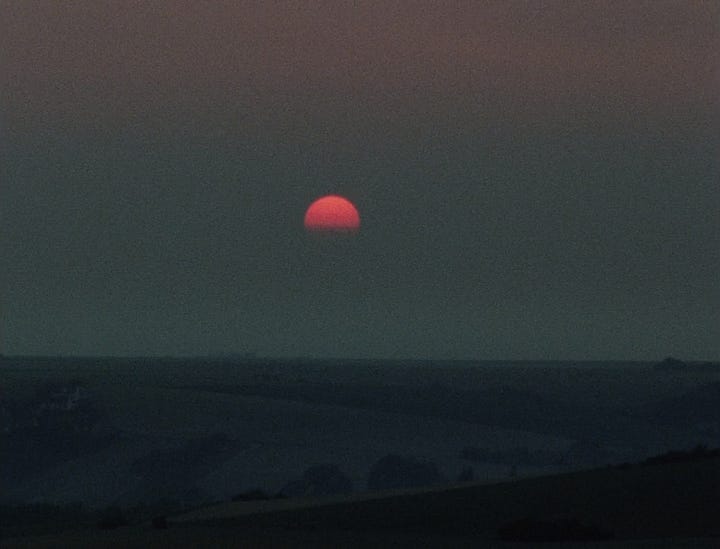
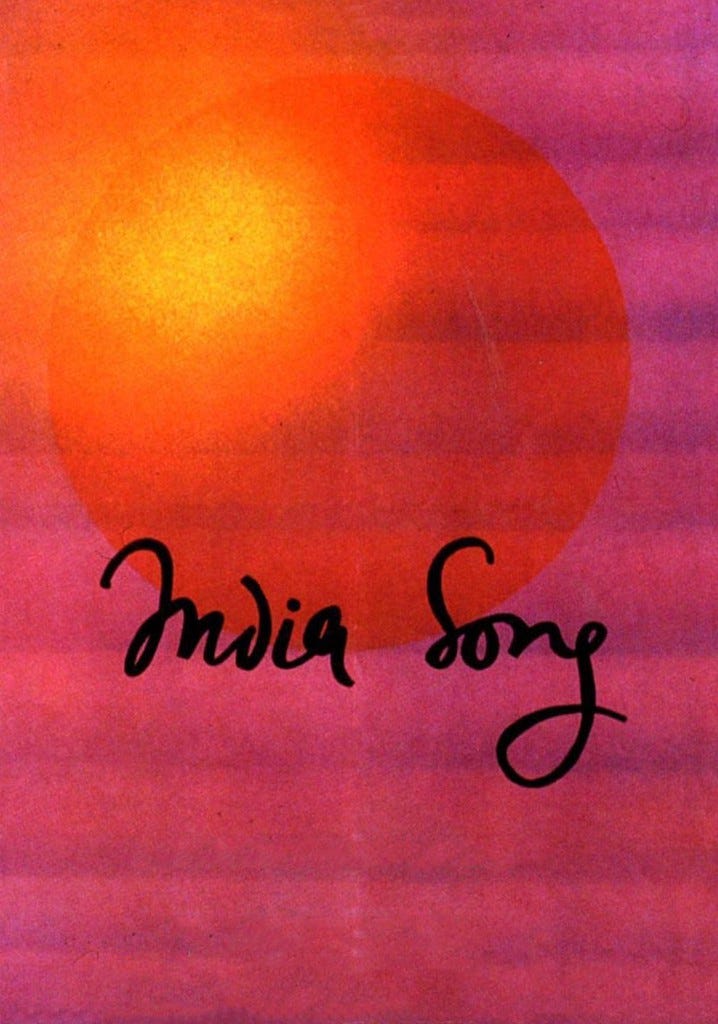
How I remember your face of disdain. Your impatience, and imperviousness. India Song is not even available on YouTube —just the trailer—which is a shame, as I would love to turn my attention now to the long and sinister beginning of the film which you once played to us in the auditorium. “The sound,” you said. “What about the sound?” You were trying to get us to focus on something. But I couldn’t hear it. I saw the sun rising or was it setting on celluloid, that orange quavering dial. And what about that film you made with me in it? Remember? I stood on a box in the auditorium and read out passages from a book by Marguerite Duras because you told me to. The book must have belonged to you. I see now that you cast me in your video because you were making the problem part of the subject. And because I was a little shit.
I have now read some but not all of Marguerite Duras. I lay my mischief down at your black leather boots. Did you wear black boots? I have actually not read that much Duras. But I know she’s important. I’m finally listening, ready to receive.
My own brow furrows and I too make stuff, stuffed up, bits and pieces not terrible enough. I’m not sure how much stuff I encounter these days is too serene, too optimistic. I’ve just been to two art fairs in Auckland and the things that appealed to me most were a black broomstick with a cock for a handle, a humpty dumpty, its back covered in a pox of buttons and a Swiss ball fashioned into a Brussel sprout. The Brussel sprout cost $2700 and I would have bought it, if I could sit on it. And if I had the money.
Art is a cold war nowhere mentioned in modernist painting.
STET. I can’t match your political nous, but I assume you were not a fan of modernist painting. Your poem was published in the Summer 1998 issue of Log Illustrated. On the front cover is a Saskia Leek drawing of a cute teen riding the log flume, based on the ride at Rainbow’s End.
U kvrge su me bacilli, o srama!
Da, to je bilo u prastaro vreme.
Jesam li bio kriv? I zasto
You were from Croatia, had moved countries, spoke a language that was not your mother tongue. I never looked up what you made, never thought about who you were as an artist, or a person, another soul. I was an undergraduate. STET.
They threw me into the pits, oh shame!
Yes, that was in ancient times.
Was I guilty? And why
Google translate is only so reliable. I’m an unreliable narrator too, I’m also a terrible liar. That is why I called you Julie in my art school memoir and not Julainne.
He asked “What’s your name?”
Art replied, “No name.”
I have wondered over the long years of writing my second memoir about professional mermaids, if I wasn’t simply caught in a protracted response to our tutorial. Still trying to learn my lessons. You shouted at me, or did you laugh, speak softly, did you even say at all, “this can’t be about Daryl Hannah”? At one stage I thought I should come and see you. We could sit face to face again and I could tell you that I eventually did what you said and thought about the myth of the mermaid across time and culture. I reached out to your LinkedIn. Eventually got a reply from your daughter, and realised, I have no right.
It had come in through the window and crouched by the fridge in the dark
He offered some bread,
And noticed that art had lost its teeth.
Recently, I looked up your work on Ngā Taonga Sound and Vision, and found my name listed in the credits to your video Happiness. And a listing for Dusha, the short film that was arguably your important work. I booked my visit. The gentle staff member led me into the reading room and sat nearby, while I watched your digitised videos. I wanted to have the strength of character to watch Dusha first. But it was thirty minutes long and I wasn’t in it. Turned out I wasn’t really in Happiness either. I caught only a few fleeting glimpses of my young, peroxided hair and face on screen, like a mirage. I laughed on the inside. How apt. I’m only the main character in my own memoirs. In your video I glimpsed my hand holding the Duras book, but still couldn’t decipher the title. I didn’t really make the final cut of Happiness.
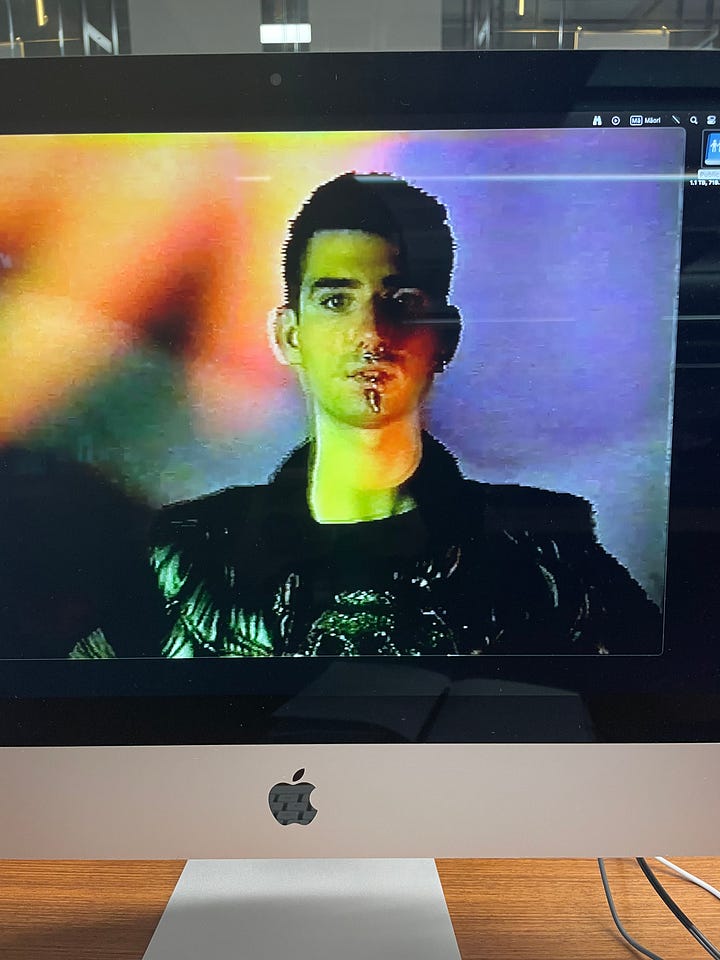
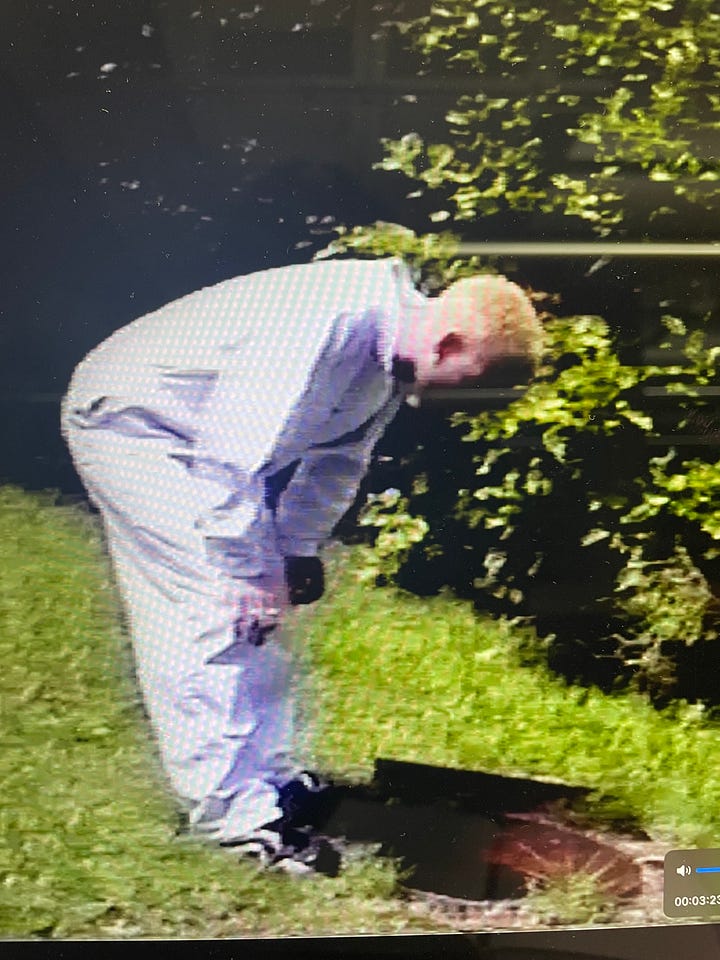
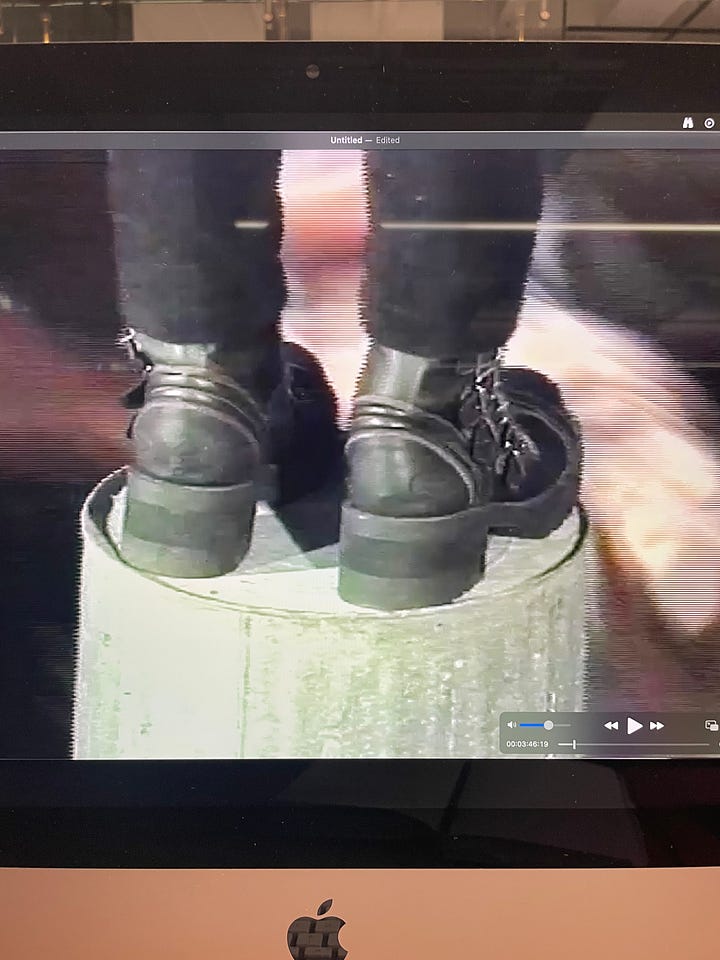
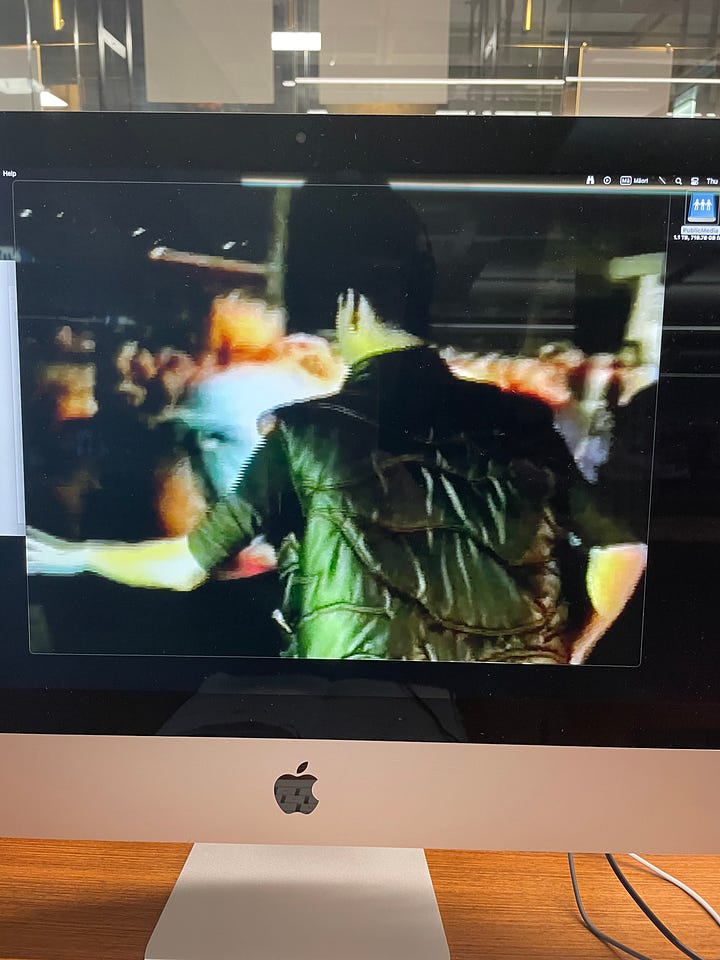
However, David Townsend who I went to art school with gets a lot of air time. I forgot about that job he had one summer going down manholes to measure something or other. David pontifices in a black puffer vest. I can’t make out a word he says. The sound in Happiness is fuzzy, static-laden, full of reverb, intentionally unable to be heard. David dressed in a white boiler suit pops in and out of manholes. Happiness also features other local artists’ work—detours into the intestines of early cyber art, Joyce Campbell’s microbial colonies, and close ups of a middle-aged woman’s stomach. The middle-aged belly in Happiness was my favourite bit. ‘Bellies’ is listed in the credits as yours.
The blurb for the video reads: “a wry look at the idea of happiness....Treatment decisions take their pretext from Samuel Beckett’s Waiting For Godot: “What shall we do now that we’re happy? We wait. Sure, but while we’re waiting?”’
It is hard to be a bitter intellectual woman in the Aotearoa art community. STET. Maybe we were never happy Julainne. Or maybe we are happy, and art made us so. Maybe I am happy as I think of you and remember our disconnect. I reconnect, rediscover my embryonic tutelage in over valuing complexity. I value you.
I watched Dusha too. It is a real film. You made stages, sets, cast actors, even your own family. A young bride and her husband, a heavy hand on her shoulder. A family caught between two cultures, the subject of the old country in the new. A set of a kitchen table and a window—its changing view. I also noticed a close up of an archive, sifted by a hand—presumably yours. Dusha ends on a Macedonian dance filmed on a windswept New Zealand beach, and a still of your son, the one who later died too young. Dusha in Croatian means soul.
“do you want to leave by the back door, or the front door?’
The front door,’ art replied.
“I’ll say I never saw you,” he called as art disappeared.
I never meant to erase you Julainne. Also, great fucking poem.
*Thank you to the peer who queried my treatment of Julainne in Things I Learned at Art School. Our text exchange is not perfectly captured in this piece, just the gist.





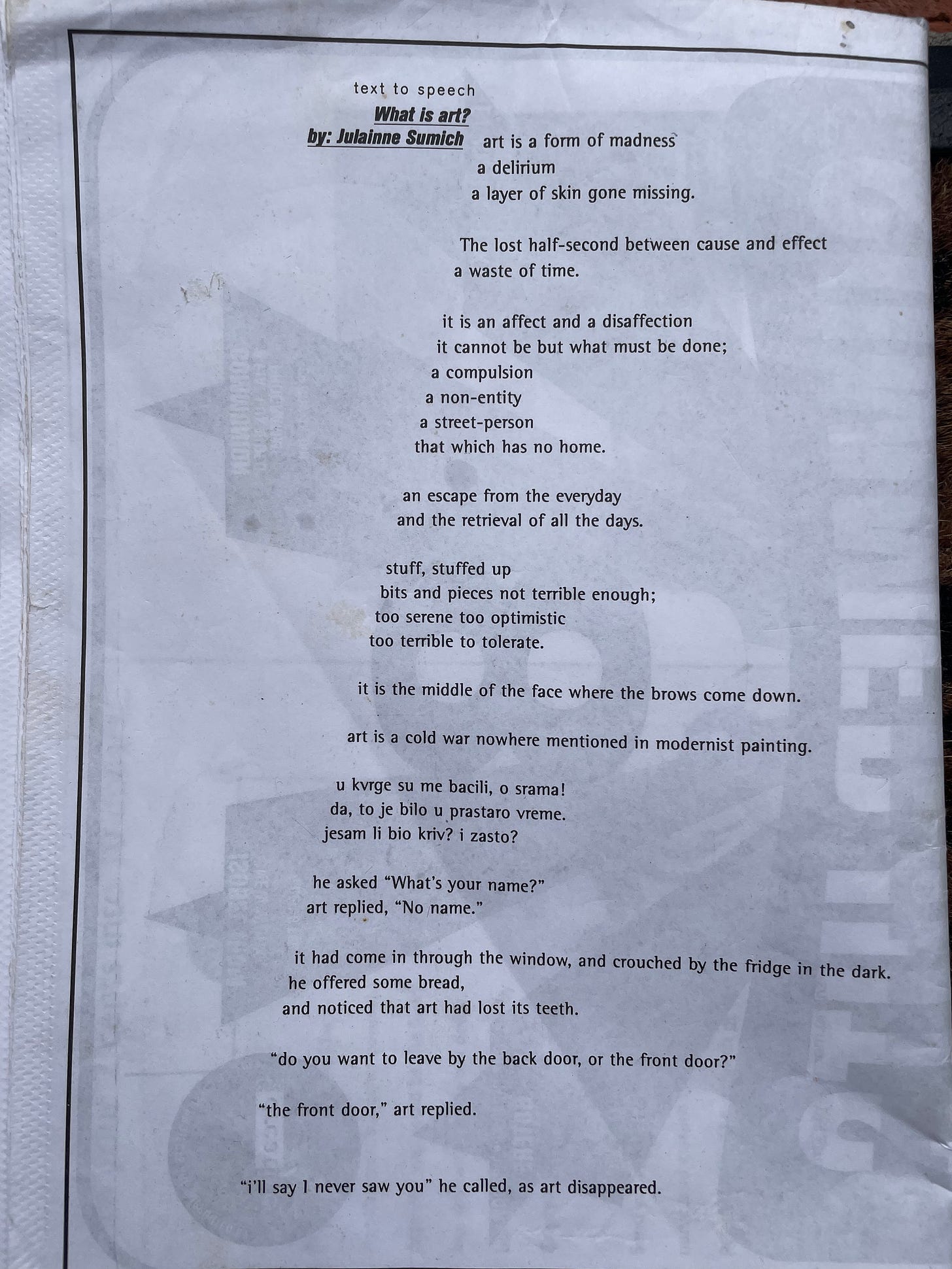
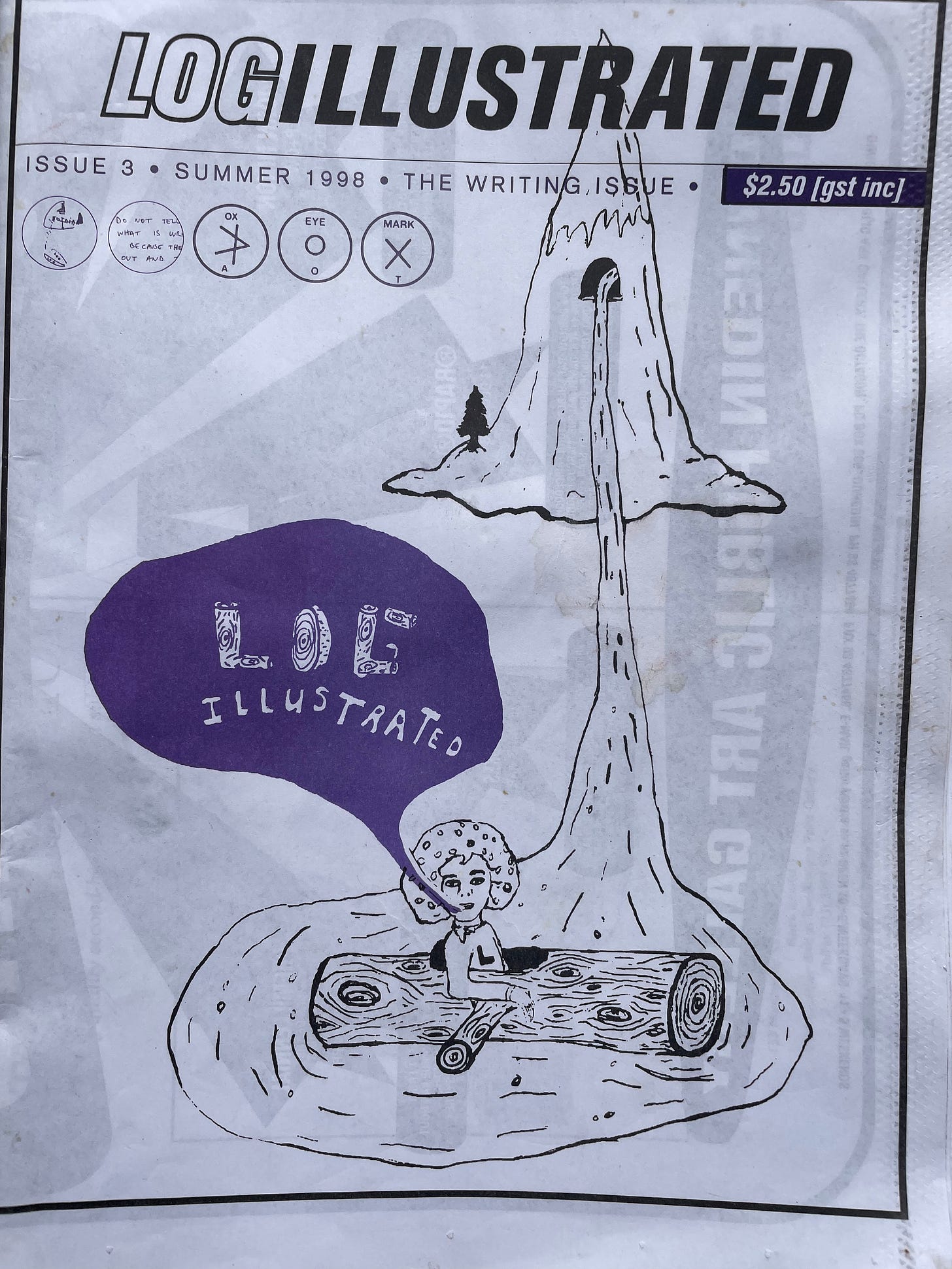
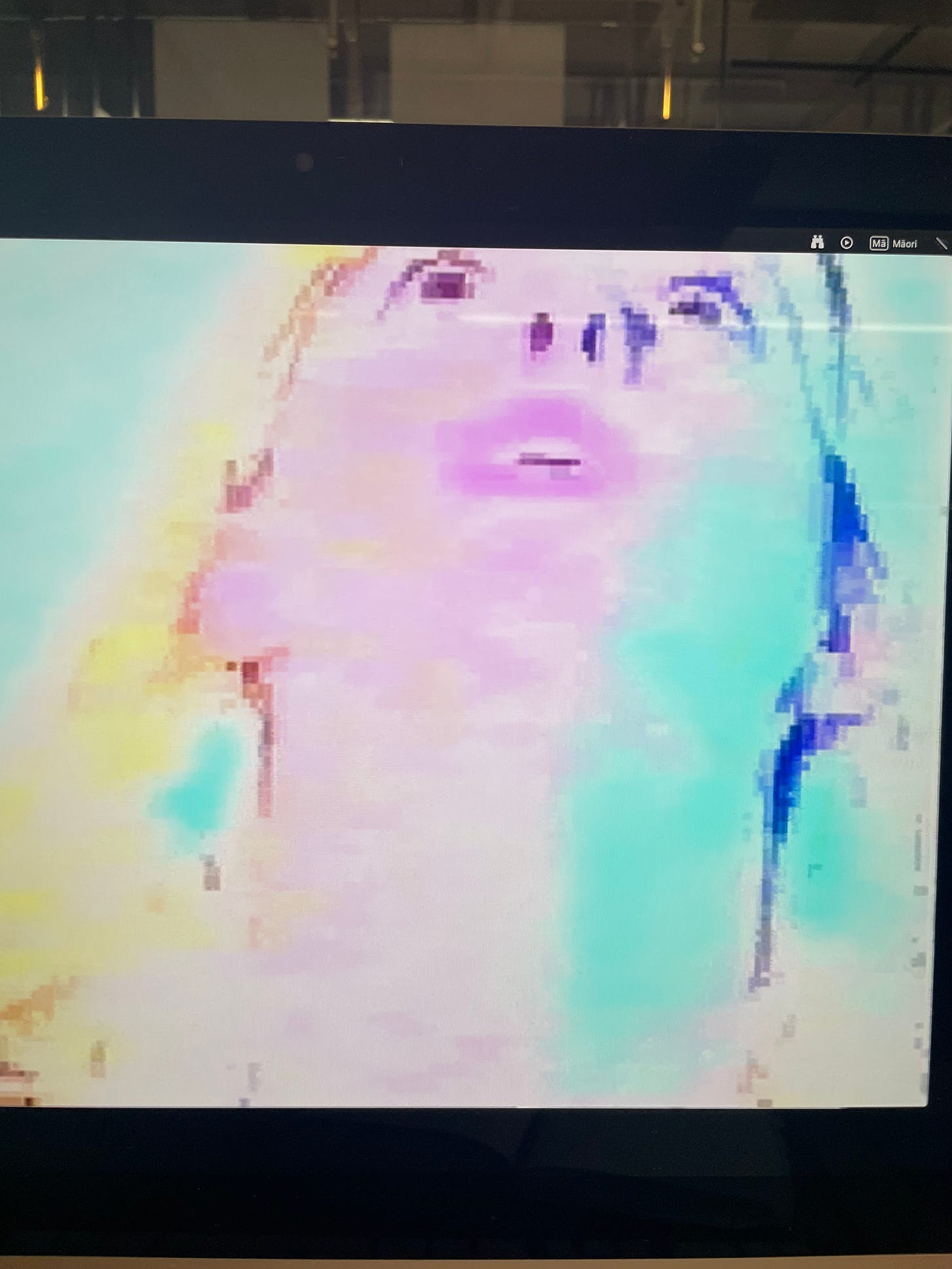
Your crackling delicious prose is incredibly moreish
Brilliant